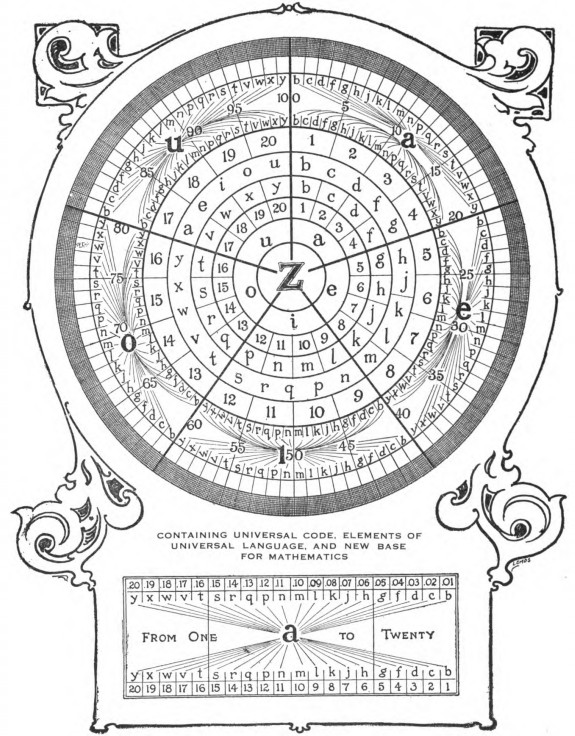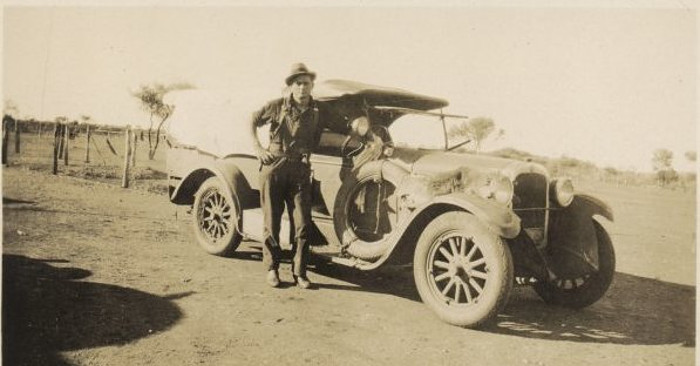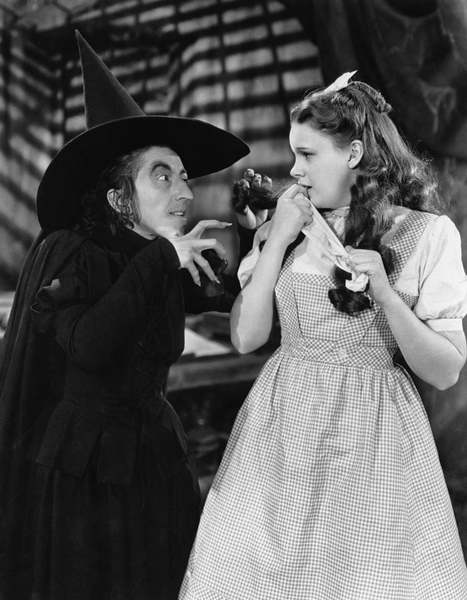
With The Scientific Dial Primer (1912), Andrew Hallner aimed to make a universal phrasebook for all mankind. The dial contains five rings, and code words can be constructed by working from the center outward. For example, the first ring contains 5 vowels and the second 20 consonants; these can be combined to create 100 two-letter words that are used to represent the numbers 1-100 (ti, for example, means 56). Adding the third ring yields 2,525 one-syllable three-letter words, which are given specific meanings (jad refers to a butcher knife, dag to cement in sacks). With some refinements, the system can encode a message as specific as this:
We shall discard all Sunday newspapers, for these are the chief sinners and temptors, being themselves Sabbath-breakers, and maintain but one or two dailies. But these you need not look at, for I will read to you such articles and extracts as relate to Congress and general intelligence, profitable and elevating to know about.
This assertion would be represented everywhere by the same code, qema; speakers of different languages would only need local phrasebooks that explain this meaning to each in his own tongue.
“By writing or pointing to the Scientific Dial Code-Word, therefore, you can communicate intelligently with any nationality on our globe,” Hallner wrote. “You can travel in or through any country, find the way, buy tickets, give orders in hotels and restaurants, attend to toilet, address the barber, arrange your baths, and do anything and everything necessary in travel; and in ordering goods, in exchanging money, and in carrying on general business transactions. And all this knowledge may be acquired in a week! For to acquire and make use of this knowledge is only to understand the Scientific Dial and the principles involved.”
The whole thing is here.




